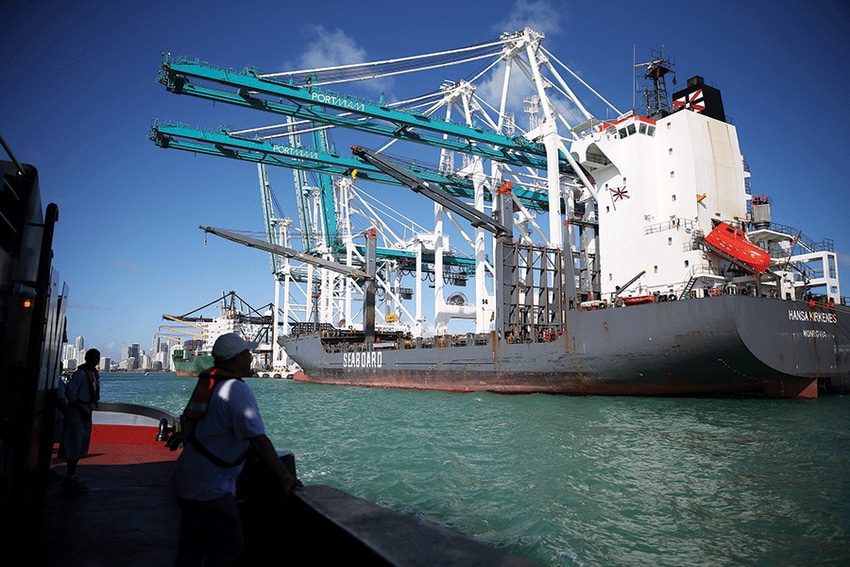
Will the Grinch steal Christmas, keeping Mexican citizens from buying fir trees from Oregon Christmas tree growers, who’ve seen exports of their holiday trees to Mexico more than double over the past four years?
They’re worried that such could be the case if the administration succeeds in scuttling the North American Free Trade Agreement, or burdening it with tariffs and rules to make it difficult or impossible to sell their trees south of the border. While the $22 million-plus value of Oregon Christmas trees is a small slice of the $262 billion in exports of goods and services to Mexico in 2016, the story is much the same across all sectors of U.S. agriculture: NAFTA is important to the economic well-being of American farmers.
Since NAFTA was birthed 24 years ago this coming January, U.S. trade with Canada and Mexico has more than tripled, and those two countries now account for more than a third of total U.S. exports. The regional market, the world’s largest free trade area, is now estimated at $19 trillion, with 14 million jobs associated with Canada/Mexico trade.
Secretary of Agriculture Sonny Perdue, himself a Georgia farmer and both a gung-ho supporter of the president and NAFTA, has said the loss of NAFTA could have “some tragic consequences” for agriculture.
Critics of NAFTA, including President Trump and leaders of various U.S. industry sectors, point to the thousands of American jobs lost to cheaper labor in Mexico, although it’s likely many of those jobs would have been lost even without NAFTA.
Regardless, the inarguable fact is that NAFTA has been a boon to most of American agriculture — tomatoes and other veggies and fruits have often not fared well, with Mexico being charged with dumping products in U.S. markets at unfairly low prices — and leaders of most farm organizations, as well as members of Congress from agricultural states, have been vocal in support of retaining NAFTA. Maybe do some fine-tuning, they say, but don’t torpedo the whole deal.
Secretary of Agriculture Sonny Perdue, himself a Georgia farmer and both a gung-ho supporter of the president and NAFTA, has said the loss of NAFTA could have “some tragic consequences” for agriculture, but, “the president is determined to get a better deal for American agricultural producers, and at the end of the day I think he will achieve that.” At the same time, he has acknowledged that the USDA is working on contingency plans for protecting American farmers should NAFTA be appreciably changed.
The U.S. is fortunate to have some of the most agriculturally productive land on the planet, but with more than nine-tenths of the world’s population living outside our borders, the ability to export farm goods will continue to be important for maintaining the viability of America’s agriculture — particularly in this period when low crop prices are sapping profitability.
NAFTA’s benefits outweigh its drawbacks, and negotiations, the sixth round of which begins in Montreal in January, should focus on keeping it in place and finding ways to strengthen it.
About the Author(s)
You May Also Like




